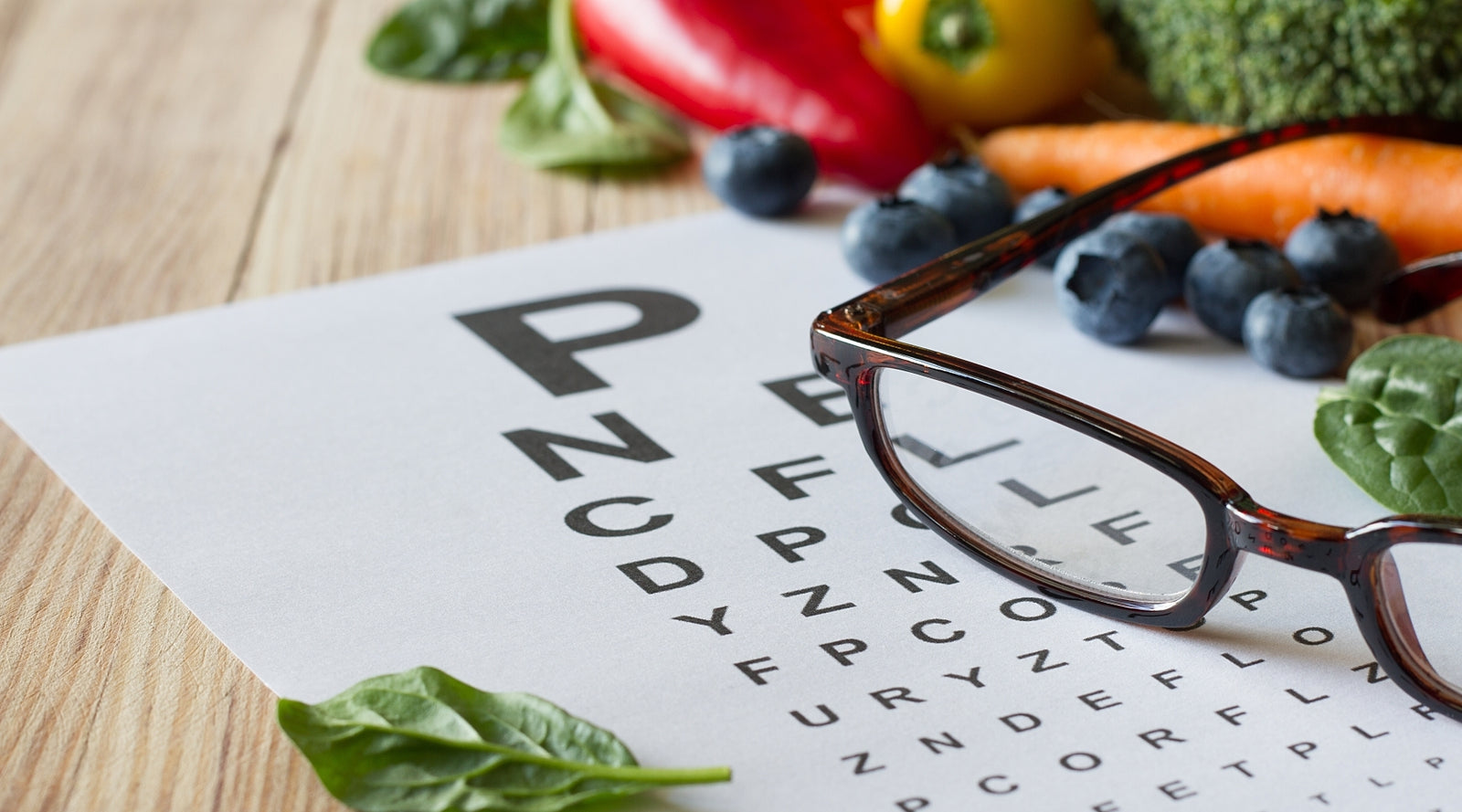In our digital world, supporting our eye health has become increasingly challenging. Hours spent in front of screens, artificial lighting, and environmental factors may all contribute to eye strain and long-term vision concerns. However, with a combination of mindful lifestyle practices and supportive tools, protecting your vision can become an achievable goal.
Let's explore natural ways to care for your eyes and learn more about how blue light-blocking glasses and vision-supportive nutritional supplements are important considerations.
Blue light is a high-energy visible light spectrum naturally emitted by the sun. However, modern life exposes us to excessive artificial sources of blue light through screens, LED lighting, and other digital devices. While some blue light exposure is beneficial—helping to regulate circadian rhythms and keeping us alert during the day—excessive exposure, particularly in the evening, may disrupt sleep and contribute to eye strain.
Melatonin is the hormone that signals your body it's time to rest, and blue light exposure may influence its production by affecting the pineal gland, which is responsible for melatonin secretion. Exposure to blue light, especially in the evening, could disrupt the natural production of melatonin and suppress the excretion, making it harder for your body to prepare for sleep. This is why limiting blue light exposure during the evening may support restful sleep.
The common signs of digital eye strain may include:
Blurred vision
Dry or irritated eyes
Difficulty focusing
Headaches
With the increasing amount of time spent in front of digital screens and artificial lighting, protecting your eyes from the harmful effects of blue light has become essential. Blue light exposure may contribute to eye strain, disrupt sleep patterns, and potentially harm the retina over time. Fortunately, there are several simple strategies you can incorporate to reduce blue light exposure and support your eye health. Consider the following tips:
Wear Blue Light Blocking Glasses: These glasses filter out a significant portion of blue light emitted from screens and artificial lighting. Wearing them during prolonged screen time during the day, and especially in the evening can help reduce eye strain, potentially support your retina, and help support natural sleep patterns
Switch to Warmer Light Bulbs: Blue light doesn't just come from your screens; it can also come from your lightbulbs. Whenever possible, opt for LED bulbs with a warmer color range to reduce blue light in your home. In the evenings, use soft lamp light or dim overhead lights to create a more eye-friendly environment
Take Regular Breaks: To minimize eye strain, make it a habit to follow the 20-20-20 rule: every 20 minutes, take a 20-second break and look at something 20 feet away. This simple practice can help reduce the stress of prolonged screen time
Limit Screen Time Before Bed: Implement a screen-free routine that includes turning off all digital devices one to two hours before bed to help your body transition naturally into rest mode
Adjust Lighting: Ensure your workspace is well-lit with warm-toned lighting to reduce glare and minimize strain
Several key nutrients have been shown to support eye health, including:
Lutein and Zeaxanthin: carotenoids found in leafy greens and concentrated in the retina. They may play a role in filtering harmful blue light and protecting the eyes from potential damage, helping to maintain overall eye health and reduce strain. These carotenoids are also found in the marigold flower, which is commonly used to extract lutein for supportive supplementation
Vitamin A: Essential for maintaining a healthy retina, vitamin A can be sourced from foods like carrots, sweet potatoes, and liver
Omega-3 Fatty Acids: Present in oily fish and flaxseeds, omega-3s may support tear production and may help combat dry eyes
Zinc: A trace mineral that helps transport vitamin A and converts it into its active form, retinal, which is crucial for vision, especially in low light. Zinc deficiency can interfere with this process, potentially leading to night blindness. Rich dietary sources include shellfish, red meat, nuts, seeds, and legumes
Antioxidants: Nutrients like vitamin C and E help combat oxidative stress, which may contribute to vision issues over time
Prioritize including a nutritious whole food diet, and consider targeted supplementation to cover any dietary gaps. For example, Daily Vision & Eye Health is a formulation that combines specific ingredients including lutein, zeaxanthin, and antioxidants that reduce occasional eye strain, keep eyes moist, protect against daily stressors and enhance overall vision.
Sleep and eye health are intricately linked. Poor sleep quality can exacerbate discomfort from digital eye strain and contribute to increased tiredness, affecting your ability to focus and function. Conversely, healthy eyes can support better sleep by reducing strain and ensuring comfort throughout the day. Here's how to enhance both:
Use Blue Light Blocking Glasses throughout the day, especially during extended screen time, to help reduce eye strain and exposure to blue light. In the evening, wearing these glasses becomes even more important to help minimize disruption to melatonin production and support your body's natural sleep cycle
Prioritize a dark, cool, and tech-free sleep environment
Consider targeted Vision & Eye Health supplementation that combine specific ingredients designed to work synergistically on the most important aspects of eye health to support vision through aging
In addition to addressing blue light exposure and nutritional support, adopting a wellness routine that incorporates healthy foundational habits can further support eye health. Include healthy vision tips like:
Your vision plays a crucial role in overall well-being, influencing everything from productivity to sleep quality. By taking proactive steps to protect your eyes—such as using blue light blocking glasses, maintaining a nutrient-rich diet, and adopting healthy screen habits—you can help reduce strain and support long-term visual comfort. Combined with targeted supplementation, these practices provide a natural, integrative approach to eye health.
Interested in the future of eye health? Listen to this podcast to discover how groundbreaking research on Yamanaka Factors could revolutionize treatments for glaucoma and vision-related issues, offering hope for reversing aging and improving eye health.
